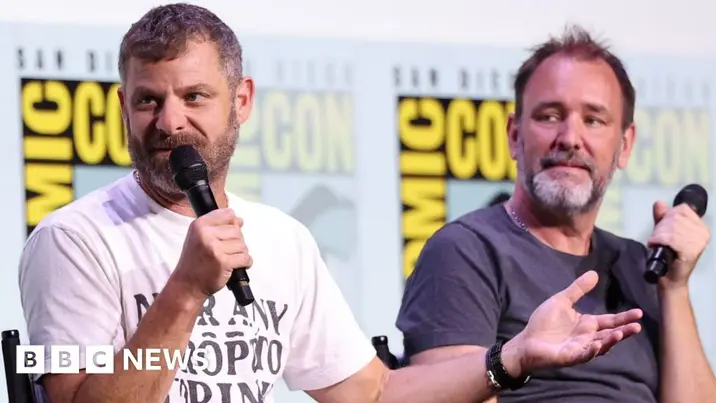T4K3.news
South Park mocks Trump in DC satire
A new episode adds to the ongoing satirical portrait of Trump and power in Washington
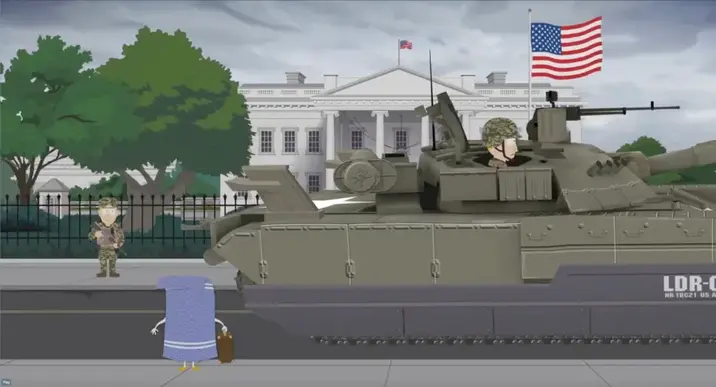
A new South Park episode sharpens its satire on Donald Trump by staging a surreal Washington visit that blends political iconography with AI and dark humor.
South Park mocks Trump in DC satire
The third episode of this season continues South Park's habit of turning political moments into outlandish scenes. Towelie is sent to Washington, DC to press for federal reclassification of marijuana. The Capitol tour is shown under heavy National Guard presence, with statues bearing Trump heads, and a militarized Union Station that echoes real world deployments. A running gag has a line of visitors offering gifts to the president, capped by a jokey caution against staring at his likeness. The humor leans into the spectacle of power and the rituals that surround it.
The episode adds a meta layer by having Randy Marsh try to spin a hologram for his marijuana venture while ChatGPT sprinkles jargon and affirmations. The gags touch on the choreography of influence, the role of tech and spectacle in politics, and the uneasy alliance between satire and the figures it targets. The White House response to earlier episodes is referenced, signaling that the administration remains a frequent subject for the show's sharp, in your face style.
Key Takeaways
"Please stay five feet away from the president at all time and avoid staring directly into his penis."
A line from the episode about the gift process in the Trump setting.
"In order for our company to make $6 billion we need you to reclassify marijuana on the national level."
Randy Marsh explains the pitch in the episode.
"What am I doing here?"
Satan wonders aloud after escaping to the White House bathroom.
"With your wisdom, I am sure we can work out an arrangement that will be mutually beneficial."
Marsh as he tries to frame a deal.
South Park churns political satire with a relentless pace, using absurdity to expose how power operates in public spaces and media. The show keeps a running thread on how symbols and rituals shape perception, while quietly critiquing the tech culture that adores buzz and big numbers. This season continues to test the line between critique and provocation, prompting viewers to reflect on what politics looks like when it is filtered through parody.
The episode also raises questions about the impact of satire on public discourse. By placing a familiar political figure in a hyperbolic setting and blending in AI talk, the creators invite audiences to consider who benefits from spectacle and how real world narratives get co opted by entertainment. In short, satire remains a mirror that can cut deep, even when the mirror is crowded with jokes and holograms.
Highlights
- Satire can expose the absurd without surrendering its own bite
- A punchy joke can outlast a long press briefing
- Power seeks a mirror and often finds a mess
- Art that unsettles power can still spark conversation
Political satire carries potential backlash
The episode targets a sitting political figure and uses explicit imagery. Such content can spark backlash from supporters, fuel misinterpretation of satire as fact, and widen political divides. Viewers may react differently based on political views and media literacy.
Satire endures as a public conversation starter, even when the jokes feel uncomfortable.
Enjoyed this? Let your friends know!
Related News

South Park airs new episode on DC federal actions
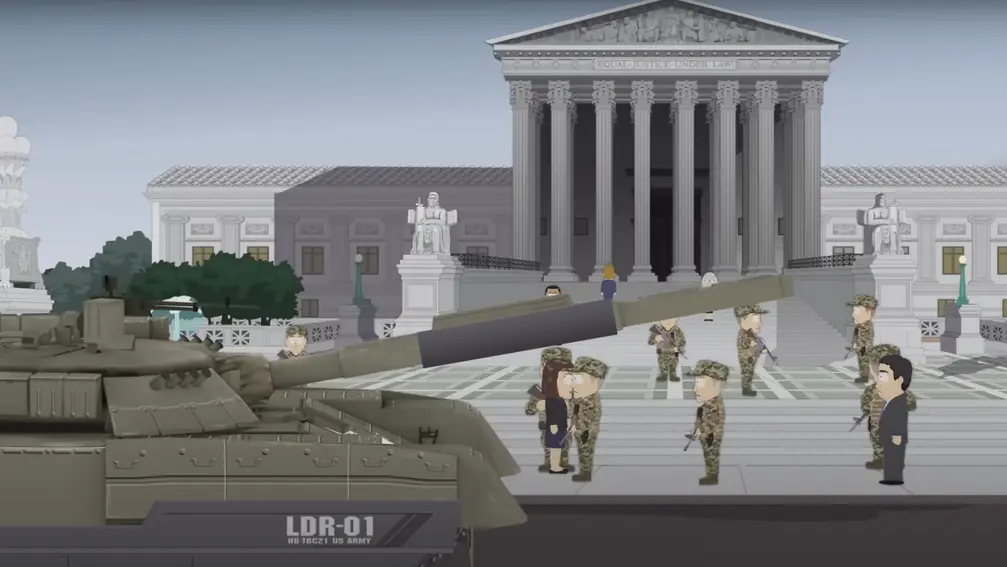
South Park satire targets DC power moves

South Park mocks Trump administration in latest episode
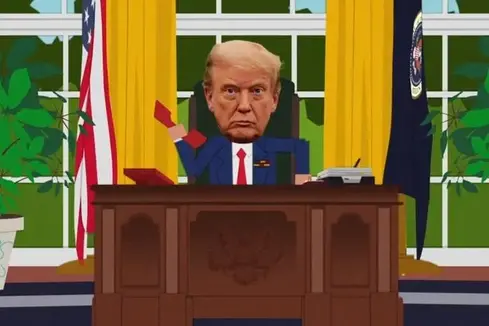
South Park boldly parodies Donald Trump in new episode
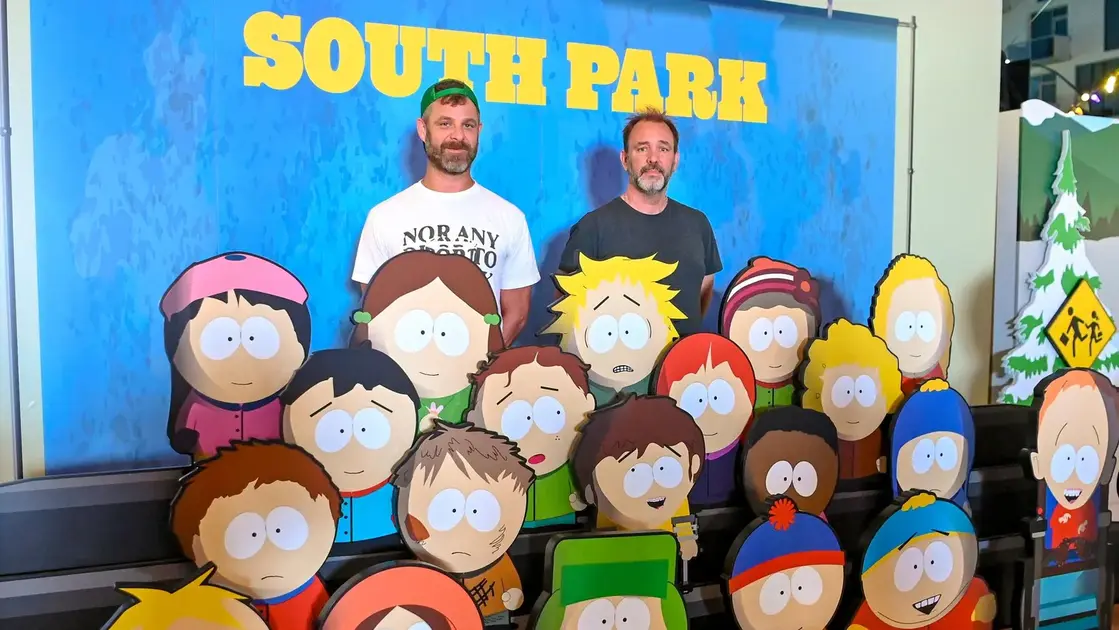
South Park satire targets Trump and tech culture
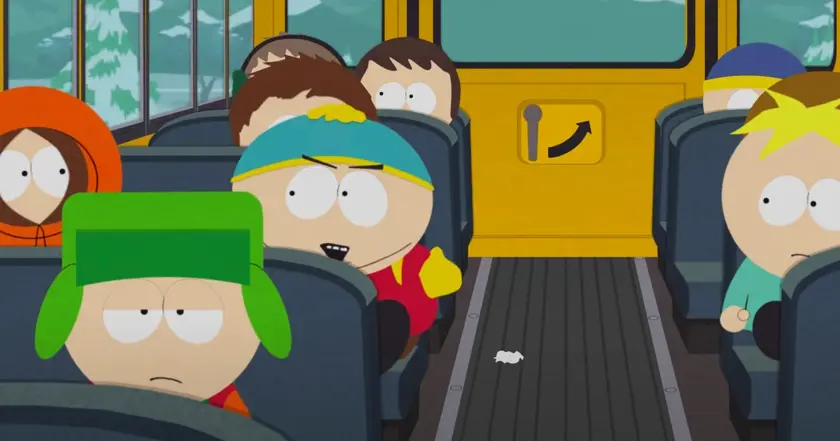
South Park season premiere critiques Trump administration

Noem criticizes South Park as lazy and petty
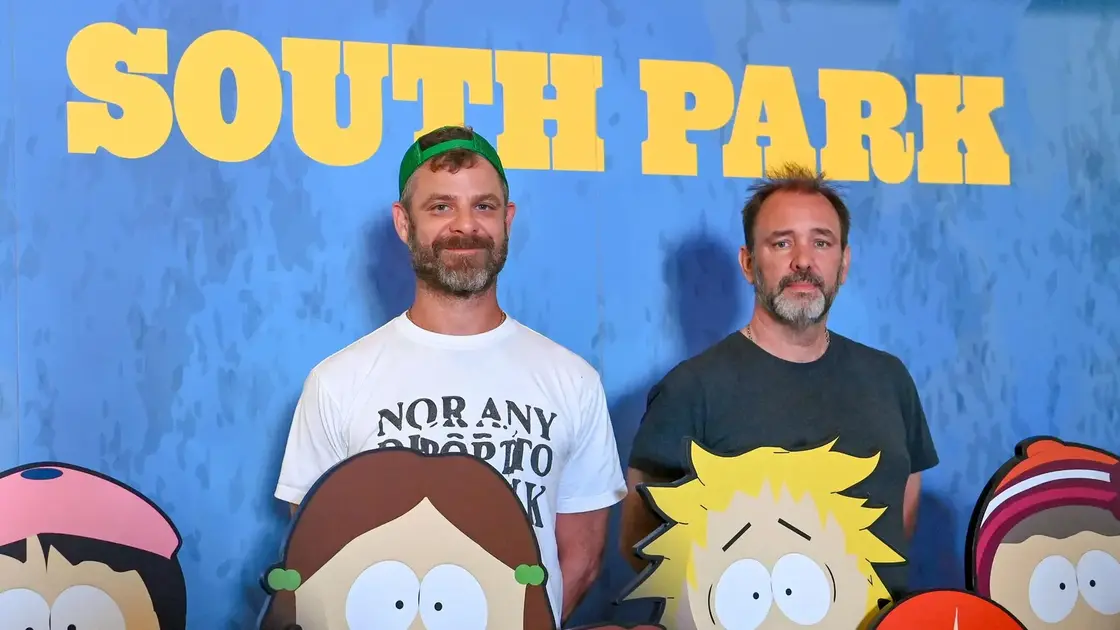
South Park targets Trump DC takeover
